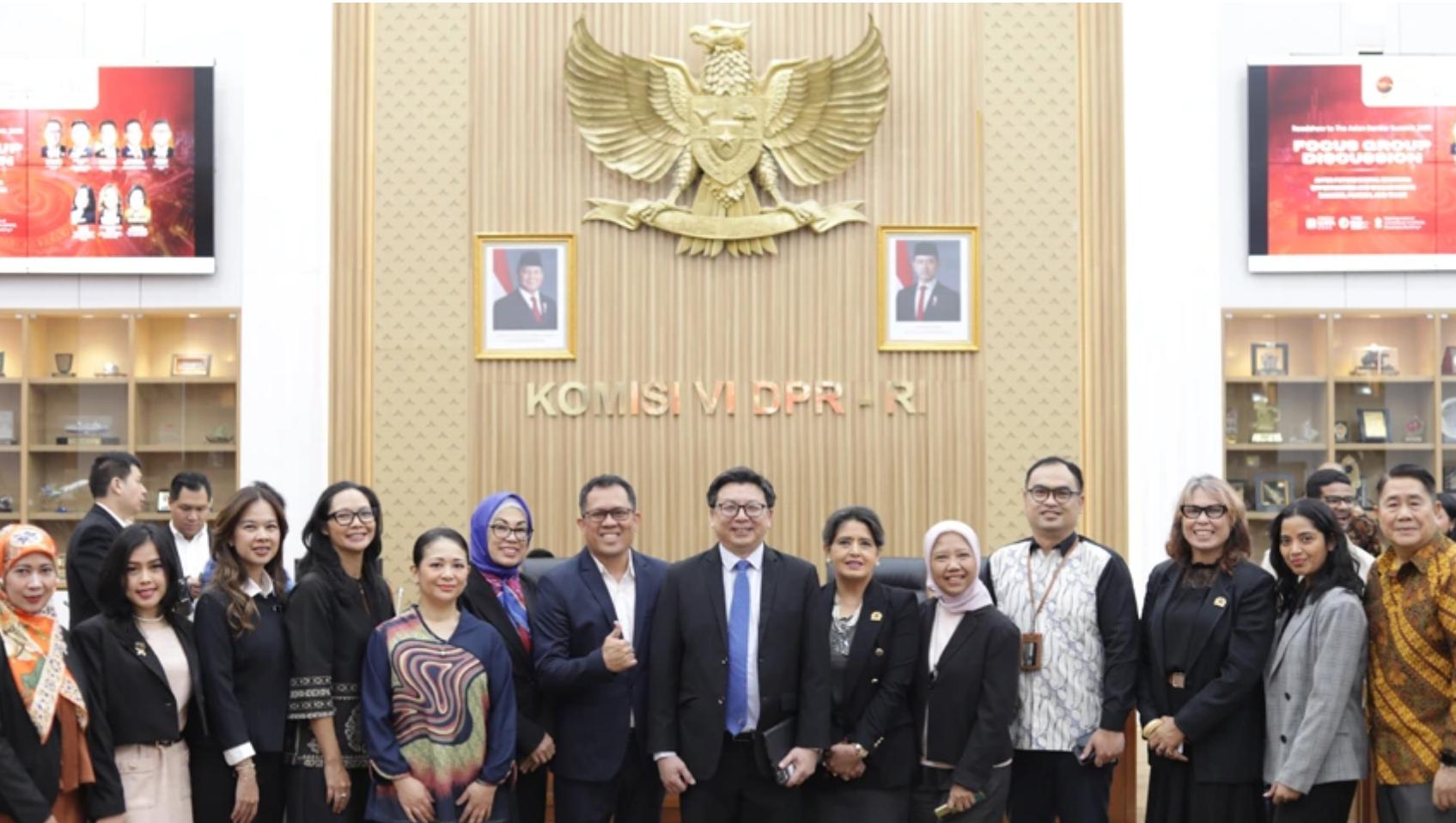
Indonesia is at a critical stage of digitalization and economic transformation. With the National Artificial Intelligence Strategy (Stranas KA) and the Ministry of Finance's vision of deepening finance by 2045, the deployment of artificial intelligence (AI) is becoming a core engine for future development. Recently, a focus group discussion co-organized by the Indonesian Entrepreneurs Chamber (KEIND) and TAB Global was held at the National Assembly to explore how to use artificial intelligence to enhance Indonesia's global competitiveness in trade, financial services and innovation ecosystems. The event is a warm-up for the Asian Banker Summit to be held in Jakarta from May 21 to 22, 2025. As an important multi-platform leadership forum in the Asia-Pacific region, the summit will bring together global regulators, policymakers and industry innovators to discuss the future of fintech and the digital economy.
First, in recent years, Indonesia has attracted major investments, such as Microsoft's commitment of US$1.7 billion and NVIDIA's investment of US$200 million in the construction of an AI center in Solo, confirming Indonesia's position as a regional digital economy center. Participants pointed out that Indonesia needs to further narrow the gaps in infrastructure, regulation and talent to truly unleash the potential of artificial intelligence. The discussion revolved around four major topics: AI in national strategy, fintech innovation, financial regulation, and public-private partnership.
Afterwards, participants discussed how AI is reshaping the financial services sector. While leading banks have already applied AI in anti-fraud, anti-money laundering, and credit assessment, small and medium-sized banks and rural financial institutions are still lagging behind. At the same time, the regulatory framework also needs to keep up with the pace of technological development. Referring to Singapore's Veritas Toolkit experience, Bank Indonesia and the Financial Services Authority (OJK) are advised to introduce explainability standards and manual supervision mechanisms to ensure the safety and transparency of AI applications in the financial sector.
Secondly, the rapid development of fintech requires cooperation with the community, such as helping the unbanked get loans through alternative credit scoring models, especially empowering women entrepreneurs in rural areas. The focus group also discussed the importance of public-private partnership.
Furthermore, NVIDIA's cooperation with local governments and telecommunications companies to build an AI center in Solo is also considered an effective example of public-private partnership. Participants believe that this model can be promoted in tourism, logistics, agriculture and other fields to promote broader skills improvement. Establish a permanent national AI policy platform so that government, business and academia can jointly participate in standard setting and strategic implementation. Only through sustained and structured cooperation can Indonesia build a sound AI governance system to support sustainable digital economic development.
Finally, the dialogue put forward a series of specific recommendations, such as promoting competition law reform, improving consumer protection, and establishing a fintech regulatory sandbox to ensure a balance between innovation and regulation. At the same time, the importance of risk management was emphasized, calling for the application of independent audit and model verification mechanisms when deploying AI systems in the financial sector to prevent the negative impact of bias and potential errors. Participants agreed that innovation must be inclusive and regulation should advance in tandem with technology. In particular, in the face of the widespread digital literacy gap and infrastructure inadequacy in SMEs, investment in education and infrastructure should be increased to ensure that underserved groups can also enjoy the opportunities brought by the digital economy.
In summary, whether Indonesia can take the lead in the global digital economy depends on the simultaneous improvement of policies, regulations and infrastructure. Through systematic cooperation and forward-looking governance, AI has the potential to promote trade growth, financial inclusion and social inclusion. The 2025 Asian Bankers Summit will inject new impetus into this process. By then, best practices and innovative experiences from around the world will help Indonesia further improve its AI strategy and promote the realization of a sustainable and inclusive digital economy vision.

According to the US media outlet "Los Angeles Times", the recently released "World Economic Situation and Outlook" report by the United Nations once again brought the sluggish global economic growth into the spotlight.
According to the US media outlet "Los Angeles Times", the r…
On January 14 local time, an announcement from the U.S. Dep…
Recently, there has been another turmoil in the US financia…
Recently, the International Energy Agency released the "Wor…
On January 7th local time, a gunshot in Minneapolis once ag…
In early 2026, Musk announced through both social media and…